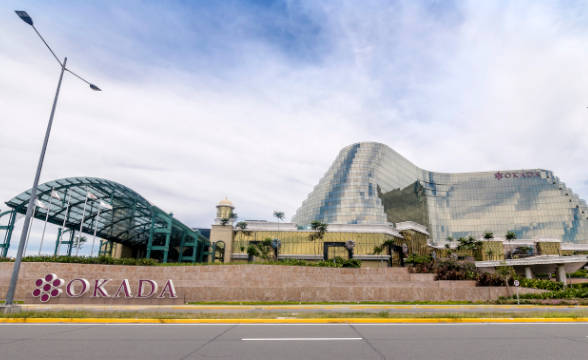Iconic, world-renowned casino resort Okada Manila brought to Manila by Tiger Resort Leisure & Entertainment has announced a second extension for its 26 Capital merger deadline. The initial merger with the special purpose acquisition company was supposed to complete on September 30, after acquisition plans were first revealed last October. The new delay in the merger also caused an additional delay related to Okada Manila’s listing on the Nasdaq stock exchange.
Nasdaq Listing Postponed by Up to A Year
The largest casino in the Philippines’ had to postpone the $2.5 billion merger together with its Nasdaq listing for up to a year because of a series of conflicts regarding a management dispute. The new date for the Nasdaq listing and merger with the company founded by gaming expert Jason Ader was set to September 30, 2023. June 30 was the previous date that the two parties had agreed upon previously, followed by another three-month delay.
Okada Manila has argued that the need to further expand the deadline for the merger was triggered by the need to “normalize the operating structure” after the Company’s Group managed to take control over its operations once again. This process of normalization, however, is expected to take more time for amending the registration statement on form F-4 according to requirements of the US Securities Act. The requirements were filed by UE Resorts International (UERI) with the US Securities and Exchange Commission. UERI is Okada Manila’s new corporate name starting last December. The name was chosen as a means to better reflect the company’s plans to gain a stronger foothold in Asia and other parts of the globe, the United States included.
A Complicated Matter
The delays in the much-anticipated merger with the Nasdaq-listed, Miami-based American special purposes acquisition company can be explained through a number of long-term battles carried out between Okada Manila and its ex-CEO in the person of billionaire businessman Kazuo Okada. The list of conflicts includes a series of lawsuits, jurisdictional inquiries, physical altercations, and even criminal allegations thrown back and forth between the two parties.
Five years ago, the Japanese businessman that founded the company was removed from all of his positions within the company as a result of fund misappropriation allegations. Nonetheless, the legality of these allegations was questioned by the Supreme Court in the Philippines under a status quo ante order. The order reinstated Okada in his previous positions.
Tiger Resort Asia, which is Universal Entertainment’s holding company, opposed the order, stating the company should not comply since the business was based in Hong Kong and had nothing to do with the court in the Philippines. This new development convinced Okada together with several police members, court officials, and representatives of the regulator in the Philippines to enter the premises and take control over it. This took place for two months, after which the regulator pulled back its recognition for the board appointed by Okada. Soon after, Universal Entertainment was able to once again gain control of the resort.
A series of new accusations regarding damages caused by employees was issued by Universal Entertainment. A few of these accusations eventually caused disruptions in the combination agreement with 26 Capital.
Attempts to Complete the Agreement Prior to the New Deadline
Okada Manila has explained that it will try to see the agreement with 26 Capital turn into a palpable reality prior to the expiration of the new deadline. In order for this to happen, the environment needed for the acquisition needs to be in place. Okada Manila spreads over more than 50 acres and has a gaming space of close to 377,000 square feet that can close to 1,000 table games and around 6,900 electronic gaming machines. The property also features two hotel towers with over 990 luxury rooms, a nightclub, a retail boulevard with 50 shops, more than 25 restaurants, and even an indoor beach club.


